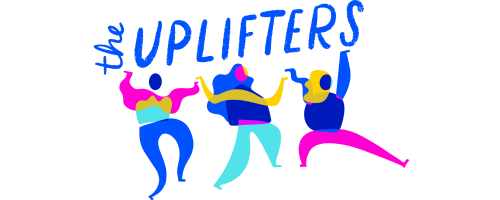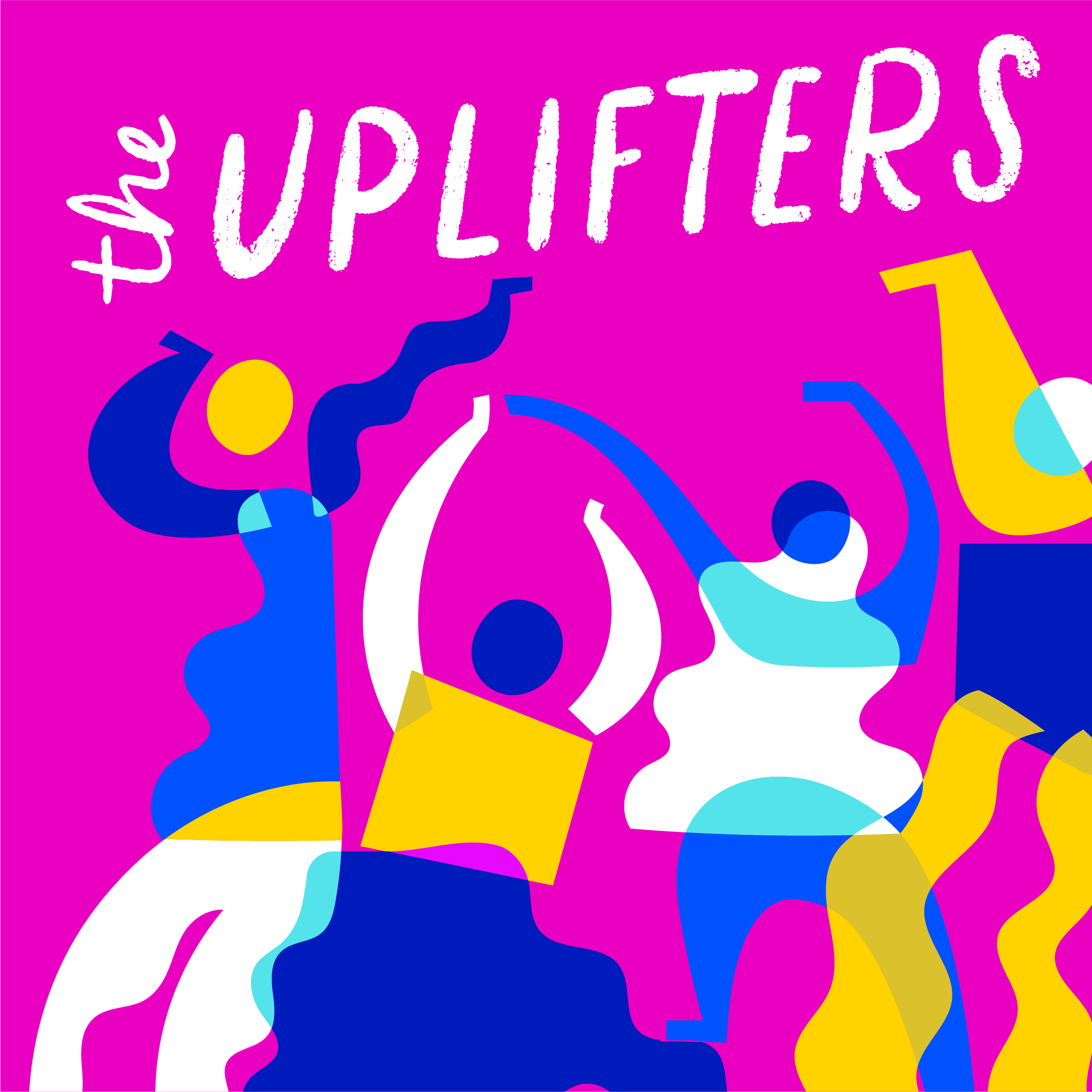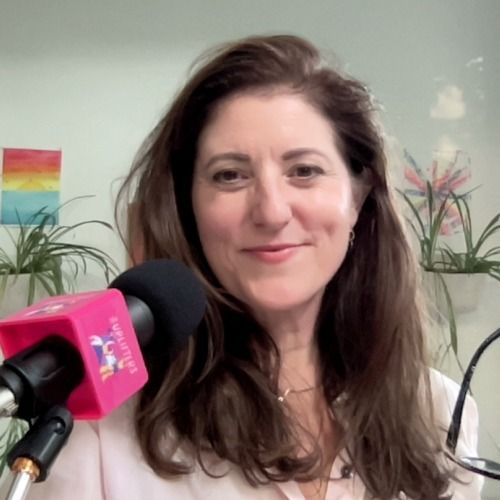Episode 64
Dr. Emily Bailey is Showing Us How to Come Through Struggle Stronger
From a young age, Emily Bailey was immersed in the world of human behavior thanks to her emergency room physician father. While most kids got bedtime stories, Emily got psychology journals to read with her dad. This early exposure and a complicated relationship with her mother sparked her curiosity about what makes people tick and set her on a path to becoming a therapist specializing in OCD and anxiety disorders.
At 17, Emily experienced profound loss when her mother died by suicide. This devastating event shook her world and could have derailed her dreams, but Emily persevered with the support of her steadfast father. She learned that even in our darkest moments, we have the power to pick ourselves up, have compassion for ourselves, and keep moving forward.
Today, Emily uses her life experiences to help others overcome their own struggles. With warmth and wisdom beyond her years, she shows her clients that they are capable of so much more than they ever imagined possible. Tune in to hear Emily's incredibly uplifting story of resilience, hope, and the life-changing power of one supportive person.
5 Uplifting Lessons from Dr. Emily Bailey:
1. Self-compassion means more than just being kind to yourself - it's about picking yourself up after failure and trying again.
2. You are stronger than you think. Collect evidence of the challenges you've overcome when self-doubt creeps in.
3. Having just one stable, supportive person in your life can transform it, even after great loss or adversity.
4. It's okay not to have all the answers. Embracing uncertainty allows you to keep learning and growing.
5. You don't have to let your struggles define you. Choose to live your life in a way that honors your authentic self.
The Great Web of Uplifters
Emily was nominated by Rev Katie O’Dunne from episode 38.
Today’s opening features Alexis Helfman.
Keep up with Emily
Emily Bailey is a licensed clinical psychologist in Georgia and through PsyPact. She is also the founder of Atlanta OCD and Anxiety Treatment, LLC, where she provides individualized, evidence-based treatment to children, adolescents, and adults who present with OCD, OCD-related disorders, anxiety disorders, parenting-related challenges, and other life stressors. Emily is passionate about helping her patients achieve a more meaningful, satisfying, and valued life. Follow her on Instagram @dr.emilybailey
Happy Father’s Day to all the dads, like Emily’s, who Uplift us.
Keep Up with The Uplifters:
https://www.instagram.com/aransas_savas/
Transcript
TUP EP 064
Voiceover: [:Nomination: Hi, my name is Katie o' Dunn, and I am so excited to nominate Dr. [00:00:30] Emily Bailey. She is an amazing clinician specializing in OCD and anxiety disorders, but she also is just an incredible, incredible human who has navigated so much in her life and who continues [00:00:45] to step forward and bring joy. And laughter and compassion to every single person that she comes into contact with.
And I can't wait for you to meet her.
oday I'm joined by Dr. Emily [:thank you so much for [00:01:30] being here.
Emily: Thank you for having me. I'm so excited. I've been looking forward to this and I'm ready to answer the questions and maybe even discover a part of myself along the way that I didn't realize was really important.
ransas: Oh, what a beautiful [:Emily: It all started way back when, and I guess if I was to think about my root, it actually probably would start with my dad.
My [:And I [00:03:15] think sometimes I receive a snapshot of someone initially, and that's at their worst. My goal is to start rolling the film and make them, hopefully help them at least, have some better snapshots, help them learn to [00:03:30] cope more, but I have to say my root is just my dad introducing this to me. He used to buy me psychology journals.
d, so I will always do that. [:Aransas: one of my favorite times that I use virtual reality [00:04:30] with a patient, he actually had a phobia of butterflies.
flies would move. And it was [:Before we did real life in vivo [00:05:00] exposures. So I fell in love pretty quickly with anxiety and OCD Aransas: Wow. What is it your dad was seeing in you that made him bring you psychology books and not [00:05:15] surgery books?
Emily: Oh, well, I definitely couldn't handle blood. I definitely couldn't handle throwing up.
u know, before there was all [:But Definitely was not my area, but I always asked him about other [00:05:45] people. Why do they do that? I just showed a lot of inquisitiveness about what made people do certain things. And he also just brought up a lot of, you know, this person's really sick. This is what [00:06:00] happened. And I would think, well, why were they speeding?
Why did they get in that car accident? Why weren't they paying attention? He also minored in psychology, so it may have been his interest too, just trying to get me to read something other than Harry Potter.
Aransas: It's [:Emily: I just was very much a daddy's girl when I was younger, and I still kind of am, but that's a lie. I'm still a [00:08:00] dad's girl,. And I had a relationship with my mom that I didn't fully understand. That was pretty tumultuous. I think that's probably a big component as well.
ing immersed in the world of [:Emily: Yeah, it's almost like preparation. Like, how can I engage with this person in a way that's meaningful, respectful, but also establishes my boundaries. Even as a kid was [00:09:00] really important to me. Like, I need to establish boundaries with this person who seems boundary less.
And, I think that played a huge role and my dad guided me through that process at a pretty young age of how do we say no and just leave it at no.
Aransas: [:Emily: Yeah, it's hard today to just say no and walk away. How do you do that? Parent to child and child to parent, it makes it a lot harder. So I think I was always immersed in understanding [00:09:30] family dynamics.
ay such an important role in [:On the other hand, fathers, they're the rough housers, right? They put you in the real world, they put you in situations where you have to figure things [00:10:00] out. Not that mothers don't, but I think their role is so different and essential that we forget. We learn from our fathers. Just like our mothers, how we react and respond to people in our environment.
: Oh, that is so interesting [:And I am so [00:10:45] grateful for that because otherwise I'm afraid my poor children would be wrapped in bubble wrap. Right. But he's really been essential in preparing them for the world and maybe I'm a little bit more essential for giving them the safe [00:11:00] place to come back home to and recover from the exposure.
have to go out in the world [:Aransas: That's such a great way to describe it, right?
the discomfort of learning. [:Emily: Yeah.
Aransas: Learning's uncomfortable. It really is. Yeah.
is too. But it's necessary. [:[00:12:15] Whoa, I'm a better person because of that. I would hope that people start seeing their failures and their weaknesses not as this thing to be ashamed of or shy away from, but something that actually made them who they are and stronger.
Aransas: [:Emily: Yeah. For social anxiety disorder, for example, you may be staying in your home, avoiding social contact.
Making a new friend, they're [:You're becoming more capable and able to do new things. And that's what treatment is. A more personal example, licensure isn't quite the process. In clinical psychology, there's [00:13:15] definitely some stigma. There's three or four times that I recall very clearly having all the qualifications and was told that there was concerns because of something I experienced when I was a child.
And [:and I'm stronger because of it. I became more [00:14:00] confident in myself despite other people having doubt.
Aransas: Wow. That's really incredible and extraordinary. And forgive me for saying, but
Emily: you're
Aransas: young.
Emily: I think I'm young. Yeah. I like to, I'm young at heart too. So I think
Aransas: [:In the very first episode of this podcast, I talked to the first Black female [00:14:30] and openly gay commercial pilot in the U. S. and I asked her this question, how did you do this thing that nobody had ever done in a room full of people who said it wasn't possible and you certainly couldn't be the one to do it?
s like, I just worked really [:Emily: There were still nights where I was like, uh, I'm too nervous or I'm [00:15:15] scared and I need to take this leap of faith for myself. So number one, I think I had a very strong role model. I think my dad was probably my strongest role model. I saw him in dirt quite a bit throughout his life as well, but he was faced with tragedy after tragedy within the [00:15:30] emergency room.
And so I always looked up to him. I always looked up to his ambition and hard work and he always told me I could do it. He never once doubted me
ng, I had someone who's very [:[00:16:30] And we had a very tumultuous relationship. And when I was 17 years old, she died by suicide. And I was put into this world where nothing really made sense to me anymore. I had to pull myself out of one of the darkest moments that I didn't even put myself in.
ust gut wrenching as that, I [:Aransas:I'm so sorry that. You had to have that experience. I'll tell you the other thing, that really came up for [00:17:30] me as you were talking, and this is something I've thought about a lot of my life at a really choppy, messy, early childhood, and my life really could have gone in a very different direction easily, but I had one person just [00:17:45] like you, who was stable and loving and told me I was amazing and lovable, and And I'm a big believer that one person is all it takes to transform a child's life.
[:And what I was also faced was, was this. Unrelenting stigma [00:18:30] of being the daughter of someone who died by suicide and not, people not understanding or people misjudging and having to try to navigate standing up for my mom and also [00:18:45] have her not be defined by her death. And the amount of support I got was incredible.
d to do laundry. I think the [:Aransas: One of the common responses is for a child to say,, how am I a player?
. And so I'm curious how you [:Emily: Yeah, it was rough. I was told it was my mom's decision from the beginning. Emily: This was my mom. This was her deci sion. This had nothing to do with you.
e and care about me be gone? [:I had to sit with that uncertainty of I'll never know why. I'll never know. What is it? The straw that broke the camel's back. Right. But what I did know is that my mom would have never wanted me to live a life [00:22:30] where my decisions were dictated by what she did. And I started thinking what's going to make me, I was a little selfish.
make me better? And that was [:Like, oh, if I had just called her, if I had just slept at her house that night, if I had, you know, done X, Y, and Z, and the, [00:23:15] the truth of the matter is, like, I can't save someone unless they want to save themselves. And I had to save myself.I took everything that there was in me and tried to give myself peace of mind.[00:23:30]
een as comfort, empathy, and [:The other part of self compassion is picking yourself up and realizing you don't want your life to be this. And so I kind of had to give myself tough love too, of, [00:24:00] okay, the thing that I never wanted to happen did. Now what am I going to do to make the most of my life? Yeah.
ves, whatever it is we face, [:it's the judgment and the self criticism and the self doubt that stop us. [00:24:30] It's not the external forces.
Emily: If we pause and engage in the belief or the thought or the idea that we're not able to do something, we're expending our energy on.
rward on staying in the same [:And the face of doubt and not being sure if you can do the hard thing, whatever the hard thing is, you are so much more capable than you think you are. And we have to test that hypothesis. We can't just [00:25:15] say that we're capable and then hope that that positive affirmation is a magic trick. We have to say it and then do it.
nce of doubt that maybe this [:Because I have learned how to hold that for myself. And I'm hopefully going to teach how, my patients, how to hold that for themselves too.
Aransas: What does that look like?
How to just like hold hope,. [:Well, I trust [00:26:15] myself enough that I could probably handle it or figure out someone else who could handle it with me. We all have to learn at some points that we can trust ourselves more than we trust our criticisms about ourselves. Because those are two different things. The critical part of [00:26:30] us is different than who we are.
and choose to believe that I [:Aransas: Yeah, I think it takes collecting evidence.
What if we like paused for a [:I think it's reminding ourselves that we're way stronger than we ever think.
Aransas: We are, [:Emily: I listen to my body and that sounds like the most standard response. I think there's [00:28:00] days that my body needs to get out and run and really be physical. And I think there's days that my body says, Emily, you need to curl up with a good book under your heated blanket and drink some hot chocolate.
I pause and ask myself, what do I need? And it can sound silly and that's okay. I'm going to embrace the silly. It's so easy to get wrapped up in life and not realize that you're running yourself ragged.
So having those safety nets. [:Right? You're allowed to be a human outside of being a psychologist. So those nudges are helpful too.
ransas: They are. And having [:Aransas: right?
w stories of dads out there. [:Emily: I am. I'm so glad that I got to speak with you and we got to explore my life in a way that I haven't really examined before.
uch an encouraging presence. [:Aransas: Oh, thank you for being here. Thank you for listening to the Uplifters podcast. If you're getting a boost from these episodes, please share them with the Uplifters in your life. And [00:30:30] then. Join us in conversation over at TheUpliftersPodcast.
our show. It'll really help [:Musoc: big love painted water, sunshine with rosemary. And I'm [00:31:00] dwelling the perplexing, though you find it flexing.
ngtime dance. With that, all [:Music: lift you up Woah, lift you up [00:31:30] Woah,
lift you up
Lift you up.
Lift you[:lift.
[:

